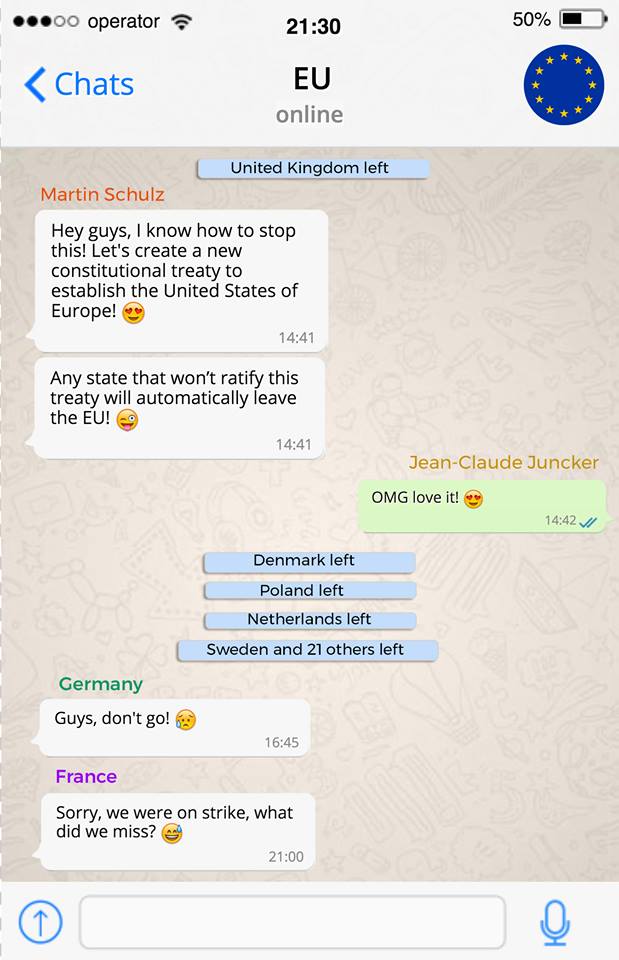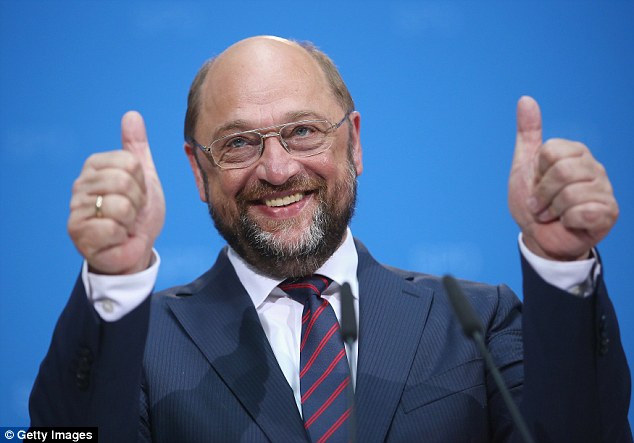Last call for Schulz?
SPD leader reveals great federalist plan
“Hey, Martin. How have you been? Is your wife okay? Look, I am calling you to ask if you could join the grand coalition. I know you said many times you won’t. But you can be Number Two Saviour of Europe next to me. What do you think?”
The phone conversations must have started like this between French President Emmanuel Macron and Martin Schulz SPD leader. Then, as I imagine, Schulz said no. Then maybe. Then a tiny yes. Just to show that he doesn’t only care about the future of the German socialdemocrats and his country, but the future of Europe as well.
His brain suddenly kicked in. Let’s dare to dream! What if he could take over Number One Saviour title? It would solve all his and his party’s credibility problems. Then he came out with the great idea of establishing the United States of Europe by 2025. He tweeted, that “a Europe that is no threat to its member states, but a beneficial addition”, but a bit later he indeed threatened those who are not very committed to deeper integration by leaving them out of the party.
To be honest, I cherish the sweet taste of gratification, because in my post two weeks ago I said it would happen. The CDU and the SPD would end up once again in a coalition, and Schulz would be able to present it as taking responsibility for the whole Europe. As a committed pro-European and a proud author of a master thesis on neo-neofunctionalism, I am also happy that the idea of a federal state is again on the table. Still, I feel it was not the best tactic.
It’s clear that Schulz wants to seize the golden opportunity of being in a strong negotiation position and pushes forward his ideas. But I doubt that the very cautious CDU will endorse his federalist budgetary plans, no matter how hard they need the alliance with the SPD. It’s too big pill to swallow for them if they have to spend German taxpayers money on financially irresponsible Europeans. Especially, that the conservatives also need to save their face in front of their voters.
The European Commission doesn’t seem to be either an ideal partner for Schulz. In their revealed paper, they opt for a quite moderate form of integration. They don’t suggest to create a real fiscal capacity, even if it would have been necessary for a genuine and well-functioning economic and monetary union even twenty-five years ago. Of course, the reason is the same as it used to be: creating transfers is politically unacceptable. The other member states, apart from Spain and maybe Italy, got shivers even at the thought of a federal budget.
So, all in all, Schulz is really close to be left together in conversation with Emmanuel. Angela Merkel can easily say that she can’t risk German taxpayers money by accepting Schulz’s ultimatum. She would then opt for a minority government, knowing well that the SPD will support all the important decisions if they don’t want to seem to be even more irresponsible.


